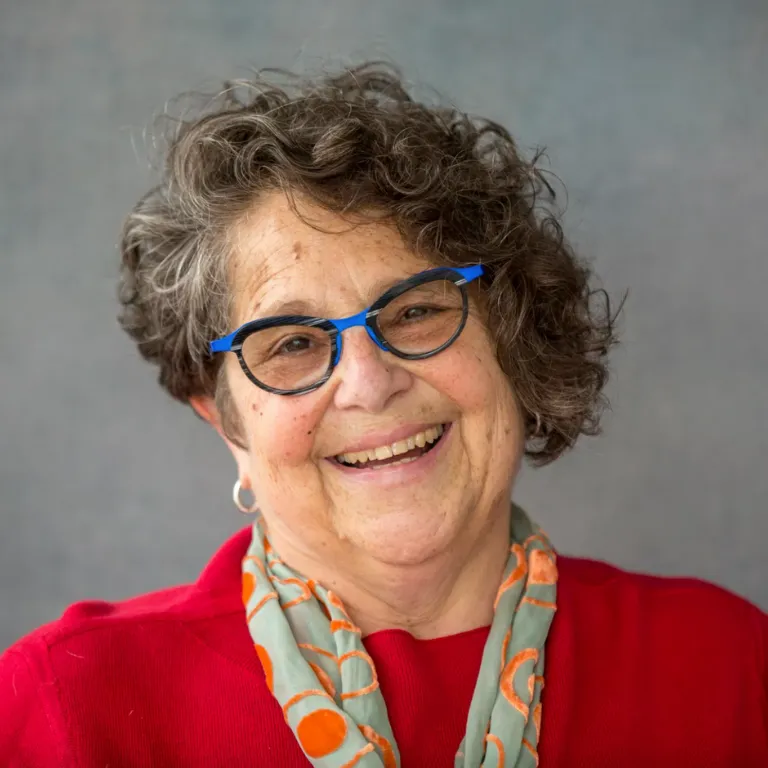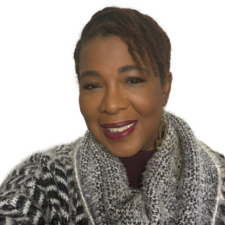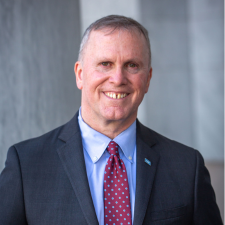Generations Journal
In-depth Views on Aging
Generations Journal, vol. 49, no. 3 (Fall 2025)Transformative Approaches to Social Security Benefits

Guest Editors:

Teresa Ghilarducci

Ruth K. Finkelstein

Na Yin
Articles in this Issue:
On Timing, Termination, and Suppression of Research and Science
This issue of Generations Journal is precious—simultaneously a monument to a bygone era and a plea for continued research and policy attention to those left behind from the promise of Social Security. In 2023, we proposed a special issue presenting research...
The Complex Impact of ‘On’ and ‘Off the Books’ Work
My mother (Ruth Finkelstein) used to say that she fell into the next phase of her life. Like many independent older adults, a fall catapulted her from a fulfilling life in her lovely apartment into the gray zone of assisted and then institutional living. In between...
Contending With Home Care Needs After a Work Disability
Abstract Workers who become disabled may need some level of home care, such as help with dressing, bathing, cooking, or shopping. Family members usually provide this care, but it may come at a cost to households facing economic precarity. This article describes the...
Caregiving and Retirement: Social Security and the Financial Strain of Eldercare
Abstract Unpaid caregivers provide essential support for older family members in the United States, often at significant personal and financial cost. With no universal infrastructure for long-term care, caregivers may turn to programs like Social Security for relief....
Unseen Costs: How Providing Eldercare Impacts Work and Economic Security
Abstract This study investigates how unpaid eldercare impacts caregivers’ work and financial security, highlighting that women and caregivers of color disproportionately bear these responsibilities. We find that in addition to shifting the costs to informal...
Left Behind Twice: Fixing Social Security for Formerly Incarcerated Elders
Abstract Older adults released from long prison terms face serious barriers when applying for Social Security benefits. Through interviews with formerly incarcerated individuals and service providers, we found that most received little or no support before release,...
Understanding Late Arriving Immigrants’ Social Security Eligibility and Retirement Security
Abstract Late-arriving immigrants constitute the largest segment (49%) of Social Security “never beneficiaries,” lacking adequate earnings to qualify for benefits. Many such immigrants work into their older years, due to financial constraints and the pursuit of Social...
The Social Security Retirement Earnings Test
Abstract This article explains how the Social Security Retirement Earnings Test works and why it is particularly relevant for lower-income workers and retirees. It presents original evidence on how misunderstood this important but complex feature of the Social...
Supporting LGBTQ Older Adults in Retirement Through Research and Advocacy
Abstract Despite the increasing numbers of lesbian, gay, bisexual, transgender/gender diverse, queer, and other (LGBTQ+) adults in the United States, there is a dearth of information on their financial well-being as they age. Available data indicate that LGBTQ+...
The Precarity Trap
Abstract Precarious (insecure, unstable, and uncertain) employment is a growing concern. Using nationally representative data on workers ages 50 through 62 from the Health and Retirement Study, we find that precarious employment in midlife is common, particularly...
Cash Is King: Effects of Un(der)reported Income on the Social Safety Net
Abstract This mixed-methods study examines the impact of cash work and income underreporting on two U.S. communities of color. We investigate how African Americans and Latinos obtain knowledge about Social Security and the Earned Income Tax Credit (EITC), make...
Student Debt Is Not Just for Kids
Abstract The individualized responsibility of student loan repayments impacts the retirement security of older Americans with education debt. Our mixed methods study combines quantitative analysis of large-scale datasets and detailed interviews to understand how older...
Computers Block Access to Social Security
Abstract The digital transformation of government services has intensified over the past three decades, but many older adults remain more familiar with mobile apps than web-based services, and often prefer in-person on phone-based help with accessing benefits. This...
Burn Out Reimagined: Extreme Heat, Work Disability, and Sociodemographic Disparities in America
Abstract The intersection of climate change and population aging presents challenges for an increasingly older U.S. labor force. Exposure to extreme heat at work is associated with mortality and morbidity, but little is known about how exposure to heat at work relates...
Uprooted in Later Life
Abstract We analyzed displacement by natural disasters and consequences for well-being among individuals ages 65 and older, interviewed between September 2023 and September 2024 in the nationally representative, high-frequency U.S. Census Bureau Household Pulse...
Generations Journal, vol. 49, no. 2 (Summer 2025)AI and Aging: On Ethics, Health, and Innovation

Guest Editors:

Dan Andersen

Faizan Wajid
Articles in this Issue:
Artificial Intelligence: An Overview
Abstract: This article traces the evolution and history of Artificial Intelligence from its theoretical beginnings to modern breakthroughs like deep learning, and more familiar versions such as large language models, manifested through technologies such as ChatGPT. By...
Alone in the Digital Age: When Technology Forgets to Grow Old With Us
Imagine this. During the COVID-19 outbreak when the city is locked down, grocery stores close early and stepping outside feels like a risk. Evelyn, a 76-year-old retired nanny, lives alone, her children and grandchildren hundreds of miles away, and feels a need...
Addressing Bias: Ageism in AI Systems
The American Society on Aging in 2024 hosted the first AI Summit in the OnTech conference, as part of the annual On Aging conference. Co-authors and Journal Guest Editors Dan Andersen and Faizan Wajid, members of the Explore Digits team, were honored to serve on a...
Artificial Intelligence at the Intersection of Aging and Public Policy
Abstract Artificial intelligence (AI) offers significant potential to enhance the lives of older adults through innovations like digital assistants and self-driving cars. But AI also poses risks, including inaccurate decisions and biased results. This article explores...
Harnessing AI for Healthcare Transformation: The Present, Near Future, and Beyond
Abstract AI is transforming healthcare by reshaping diagnostics, streamlining healthcare operations, and offering new pathways to support elders. This article examines current and future applications of AI in healthcare, with a focus on older adults and the care...
Targeting Neurodegenerative Diseases: AI’s Role in Research and Treatment
Abstract Artificial intelligence (AI) is transforming the early detection, diagnosis, and care of neurodegenerative diseases in older adults. This article reviews current AI applications in imaging, digital biomarkers, and electronic health records for conditions like...
The Future of Long-Term Care in the Age of Artificial Intelligence
Abstract: Artificial intelligence (AI) is transforming industries, and long-term care is no exception. With the advent of large language models and agentic (capable of achieving independent outcomes) AI, aging services providers must rapidly adapt to harness benefits...
AI as the Engine to Move Toward Integrative Health for Older Adults
Abstract The global aging population presents profound social, economic, and healthcare challenges, necessitating innovative approaches to extend healthspan—the period of life spent in good health. This article explores the transformative role of artificial...
Wearables and Smart Homes: Sensing Technologies for Older Adult Care
Abstract As the older population grows, elder care demand increases, putting significant pressure on professional caregivers and family members. Caregivers often face emotional and physical strain, while older people risk social isolation and delayed medical...
Harnessing AI to Strengthen Community and Support Networks
Abstract For Black elders, community is more than a support system; it’s a source of connection and well-being. As the world becomes increasingly digital, artificial intelligence (AI) is emerging as an important tool with the capacity to deepen or disrupt these...
Aging-in-Place Villages and the Promise of Artificial Intelligence
Abstract Older adults, their families, their communities, and public health and social services agencies share the desire to enable individuals to age in place (Malani et al., 2024). Over the past 25 years, nonprofit virtual villages have emerged as important...
Future Trends and Challenges in AI for Aging Populations
Note to readers: To solicit this conclusion from ChatGPT, the guest editors described the issue themes, sent it the final articles and asked for the article ideas and themes to be consolidated in a short conclusion. The below is that result, which was also run through...
Generations Journal, vol. 49, no. 1 (Spring 2025)The Promise of an Age-Friendly Ecosystem

Guest Editor:

Karon L. Phillips, PhD

Megan Wolfe, JD
Articles in this Issue:
The Evolution and Promise of Age-Friendly Ecosystems in Rural Communities
Abstract Rural America, home to more than 20% of the older adult population, faces distinct challenges in supporting healthy aging. Despite these challenges, age-friendly initiatives have not been fully prioritized in rural communities. The National Rural Age-Friendly...
Age-Friendly Public Health Systems
Abstract Trust for America's Health (TFAH) is leading efforts to make healthy aging a core function of the public health sector. Through TFAH's Age-Friendly Public Health Systems (AFPHS) movement, state, local, tribal, and territorial health departments are exploring...
Equitable Adoption of the 4Ms in Age-Friendly Care
Abstract The Age-Friendly Health Systems movement, led by The John A. Hartford Foundation and the Institute for Healthcare Improvement, in partnership with many organizations and health systems, aims to address the growth of the older adult population and the...
Building Livable Communities
Abstract The global age-friendly movement, launched in 2006 by the World Health Organization, has transformed how communities address aging population needs. In the United States, the AARP Network of Age-Friendly States and Communities (NAFSC) has played a critical...
The Role of Age-Friendly Universities in the Age-Friendly Ecosystem
Abstract The Age-Friendly University movement aims to create inclusive educational environments promoting lifelong learning, intergenerational exchange, research, and community engagement by integrating the Ten Principles of an Age-Friendly University. Institutions...
Dementia-Friendly Communities as a Catalyst for Cross-Sector Collaboration
Abstract Home- and community-based services and supports for people living with dementia are a critical component of age-friendly ecosystems. Dementia Friendly America (DFA) provides a framework to align best practices across age-friendly and dementia-friendly...
Leveraging Disability Partnerships and Policies to Advance Age-friendly Ecosystems
Abstract The success of Age-Friendly Ecosystems depends upon the participation and buy-in of sectors and stakeholders that serve and affect older adults. The disability community is a critical partner that largely has not, to date, been included in age-friendly...
State Multisector Plans for Aging Can Promote a More Coordinated “Ecosystem” for Older Adults
Abstract With increased uncertainty around federally funded programs, it is more important than ever for states to take the lead in ensuring that services and supports for their older populations are coordinated and efficient. To this end, more than half of U.S....
Creating a Harmonious Age-Friendly Ecosystem that Delivers
The Age-Friendly Ecosystem is a multi-sectoral framework that prioritizes improved quality of life for older adults through collaborative impact. Actively engaged sectors include healthcare systems, public health departments, the aging services sector, academia,...
Principles and Approaches for Unifying an Age-Friendly Movement
Abstract Age-friendly initiatives dispersed across sectors have the potential to coalesce into a broader movement. This article describes the concept of social movements and its relevance for bringing together efforts as part of an age-friendly ecosystem (AFE). It...
Co-creating Age-Friendly Futures
Abstract This article examines how cross-sector collaborations and leadership can be leveraged to advance age-friendly initiatives, with a particular focus on the role of co-production and the involvement of older adults. It first reviews examples of age-friendly...
Advancing an Age-Friendly Ecosystem in Mississippi
Abstract Over the past 4 years, a partnership between the Mississippi State Department of Health (MSDH), the Mississippi Public Health Association (MPHA), and AARP Mississippi has been systematically and intentionally building an age-friendly ecosystem for...
Understanding and Addressing the Needs of Tribal Elders in Washington State
Abstract Washington State's Department of Health was selected in 2020 to join a Trust for America's Health expansion opportunity as part of its Age-Friendly Public Health Systems initiative that would include tribal public health departments, local health...
The Impact of Cumulative Inequities on Older Adult Health
Abstract Older age can be the best of times, marked by health and happiness, or the worst of times, marred by disease and distress. Late-life health disparities do not emerge suddenly on one's 65th birthday; they can result from cumulative processes that span decades....
The History and Imperative of the Age-Friendly Ecosystem
Abstract The Age-Friendly Ecosystem (AFE) movement has gained global momentum, reflecting the demographic shift toward an older population. This article describes the movement's historical development and examines key components of an AFE and the critical importance...
The Promise of Age-Friendly Workplaces
Abstract The Age-Friendly Workplace initiative has gained significant traction in recent years as organizations adapt to shifting demographic trends and increasingly acknowledge the business and social importance of fostering inclusive and welcoming environments for...
Generations Journal, vol. 48, no. 4 (Winter 2024–25)Grandparents Raising Grandchildren in the United States

Guest Editor:

Wendy Lustbader, MSW

Gaynell M. Simpson, PhD
Articles in this Issue:
Skipped Generation Households: A Snapshot of Preface for Three Articles
Abstract Previous research has insufficiently investigated how grandparents in skipped-generation households (consisting only of grandparents and grandchildren) interpret and respond to children's social, emotional, cognitive, and physical developmental needs. This...
Advocating for Grandparents Who Step in to Parent
It has been an immense pleasure to work on this seminal issue of Generations about Grandparenthood, specifically as it relates to BIPOC grandparents raising grandchildren in skipped generation households. Guest Editor Wendy Lustbader, MSW, is a Clinical Professor in...
The Power of Strength: A Tribute to My Grandmother and All Grandparents
Background: Setting the Stage According to the Oxford Dictionary, strength is the ability to withstand great force or pressure. When you turn on the news or talk to a family, friend, neighbor, or co-worker, it is evident that we all are living in a time of great...
A Glimpse into the Lives of African American Grandmothers Caring on the Margins
Abstract This article details experiences of grandmothers from marginalized communities caring for grandchildren outside the formal kinship care system. It begins with my journey into the field of grandparent caregiving as a doctoral student, then details findings...
A Case Study of Compound Caregiving by an African American Grandmother
Abstract Twenty-four percent of African American women are caring for more than two people—also known as compound caregiving. Such caregivers face elevated risks of invisibility, social isolation and loneliness, emotional distress, financial strain, and physical...
The Impact of Latino Culture on the Experiences of Abuelitas (Grandmothers)
Abstract In order to create culturally appropriate interventions and supportive services for Latina grandmothers raising grandchildren, it is necessary to understand the impact of the Latino culture on these women's experiences and perspectives. Latino cultural values...
Family Dynamics When Grandchildren Are Not Siblings: An Opening Discussion
Abstract This article draws attention to the influence of family composition among grandparent-headed families, and its likely impact on family functioning. In this instance, family composition refers to the number of members in a family unit and whether the...
Getting By Is Not Enough
Abstract African American grandparents are an essential part of family stability. Yet too many skip-generation households must navigate care within the constraints of poverty and adverse childhood experiences (ACEs). They are called upon and expected to do more with...
Keeping Families Together Via Better Guardianship Rules
Abstract In many BIPOC families, children spend significant periods under their grandparents' or other relatives' care. Minor guardianship can be an important legal mechanism, giving caregivers the legal status needed to serve as a substitute parent and provide...
Diversity Among Grandparent Caregivers: What We Need to Learn
Abstract: This article examines the implications of prioritizing diversity among grandparent caregivers as a lens through which they can be better understood, with special attention to Black, Indigenous, and Persons of Color (BIPOC). Over the past few decades, the...
‘I Wanna Put That Education in Them’
Abstract This article examines how grandmothers raising their grandchildren in skipped-generation households support their grandchildren's cognitive development across the life course, predominantly by prioritizing their education in daily routines and by...
Getting Grandchildren Back on Their Feet
Abstract This article examines how grandmothers raising grandchildren in skipped-generation households tended to their grandchildren's physical development, including 1) treating illnesses and injuries; 2) alleviating malnourishment and teaching healthy eating habits;...
‘Your Grandma Is Here for You’
Abstract This article explores how grandmothers raising grandchildren in skipped-generation households fostered their healthy social and emotional development by helping them cope with emotional difficulties from parental absence and presence, grandfamily stigma, and...
Empowering Grandparent Caregivers Via In-Person and Virtual Programs
Abstract Empowerment programs for grandparent caregivers can serve to support and enhance the roles of grandparents in the community and family. Traditionally such programs have been offered in-person, with the leader acting as facilitator. In 2021, in-person...
A Culturally Adapted Kinship Navigator Program
Abstract The Port Gamble S'Klallam Tribe (PGST) operates as a full-service government, including a child welfare system in the Children and Family Services (CFS) Department and a Kinship Navigator Program, the Kinship Parenting Program. That program works with kinship...
Supporting Kinship Caregivers
Abstract This article describes Washington State's efforts to understand and support the needs of kinship caregivers through cultural adaptations, focusing on tribal and Latine communities. The state's Kinship Navigator Program history is described, as well as its...
GRAND Voices—Powerful Advocates for Change
Abstract Engaging people with lived experience needs to be intentional and supported to be effective. For more than 10 years, Generations United's GRAND Voices Network has demonstrated the power and impact of meaningful engagement changing public policy and service...
Generations Journal, vol. 48, no. 3 (Fall 2024)The Anniversary Issue: Revisiting Generations in ASA’s 70th Year

Articles in this Issue:
ASA’s Golden Child, Generations
One of the highlights of my career has been the opportunity to serve for 2 decades on the Editorial Advisory Board of Generations, the quarterly journal of the American Society on Aging—both as its chair and as a guest editor for three issues. Each issue of...
How Splendid to Explore ‘Gender and Age: A Focus on Women’
It's not unusual to wince when looking back at how we saw the world earlier in life—areas of innocence that became decidedly more complex and nuanced over time, invisible biases that once skewed our perceptions, situations that loomed with great significance yet...
Generations, a Voice for Those Affected by the Care Management Evolution
There are many great benefits to being an ASA member, which makes it hard to choose just one to focus on. I became a member of ASA to gain insight into all that I did not know about aging. For 10 years, I had been in what became the Aging Network, had the privilege of...
History Repeats Itself on the Page
This idea of rounding up former chairs of the Generations Editorial Advisory Board for a dedicated journal to mark ASA's 70th anniversary is delightful, and something to celebrate, indeed! For 7 1/2 years between 2006 and 2015 I served as chair of the Editorial...
Innovating Like It’s 1976
So much progress! Onward and upward we go in the field of aging, especially in policy and advocacy! Look at our sophisticated cross tabulations, be impressed by our rich data and sharp analyses, check out the way we use technology for advocacy campaigns! We've made so...
Medicare Has Sustainability Issues: Who Could Have Guessed?
The Medicare program has been a major boon to the United States' national well-being since its enactment in 1965, resulting in enormously improved access to high-quality, affordable health care for many millions of older and disabled Americans. But these benefits of...
Remembering the Value of Legacy
During the years in which I served on the Generations Editorial Advisory Board (1990-2012) and chaired it (1997-2001), single-themed issues of the journal were not so much assembled (as at a conventional journal) as curated. At in-person meetings of the board, members...
Why Care Is So Fundamental
Editing the publications of the American Society on Aging has always felt more like a privilege than a job. During the past 13 years working here, I have learned much more than I originally thought possible. I hadn't come into the job blind, mind you; likely the story...
Generations Journal, vol. 48, no. 2 (Summer 2024)Advancing Applied Research in Aging

Guest Editors:

Claire Ankuda

Bonnie Ewald
Articles in this Issue
How States Use Data to Inform Family Caregiving Policy
Abstract: Family caregivers are a key part of states' long-term care systems, and longitudinal data and evaluations on family caregivers can help states more effectively develop and implement policy to support these populations. Several states have developed...
Data Could Now Guide Population-Based Improvements in Local Eldercare
Abstract: Medicare and Medicaid data, augmented with additional datasets, can now help communities improve eldercare by revealing local priorities and monitoring improvements. With initial partner communities, we developed and monitored dozens of performance measures,...
How Research Can Influence Payment Policy
Abstract: Decades of research have demonstrated that Hospital at Home (HaH) safely delivers hospital-level care in a patient's home. More recently, research has informed the development of a value-based payment model to disseminate HaH. The COVID-19 pandemic enabled...
How Do Foundations and Funders Approach Evaluation and Impact?
Abstract: Evaluation and impact are two words many of us use daily. But what do they mean and how can they improve our work? As a funder, evaluation plans are an integral component of all proposals we review. This article explains why evaluations are so important to...
Pragmatic Clinical Trials for Dementia Care: Experience from the First 5 Years of the IMPACT Collaboratory
Abstract: The IMPACT Collaboratory is a national infrastructure and resource dedicated to transforming dementia care in real-world environments for millions of Americans and their care partners, using embedded pragmatic clinical trials. This new approach of applied...
Spending Time in the Weeds, But for Worthy Outcomes
How does that old saying go, if you want something done then ask a busy person? That is exactly what happened when we asked Bonnie Ewald and Claire Ankuda to guest edit this complex issue, “Advancing Applied Research in Aging,” of Generations. Turns out that adage is...
Defining Evidence for Aging Services in a Dynamic World
Abstract: Since the early 2000s, the Aging Network has made great strides in building capacity for and delivering evidence-based programs that promote the health and well-being of older adults. With an eye toward a more dynamic approach to understanding, developing,...
Navigating Evaluation Challenges in Community-Based Care Management
Abstract: The finding that the Camden Coalition's signature care-management intervention, the Camden Core Model, did not reduce readmissions was a significant moment for the organization. While disappointing, we saw it as an opportunity to learn and further innovate...
Applied Research in Aging: Advancing Health Equity and Addressing Social Needs
In May, the Department of Health and Human Services' newly formed Interagency Coordinating Committee on Healthy Aging and Age-Friendly Communities released a strategic framework for a national plan on aging. This framework outlines collective goals for supporting the...
Leveraging Health Services Research to Address Aging Health Equity
Abstract: To achieve optimal, equitable health outcomes for all older adults, the United States desperately needs equity in access to, quality of, and cost of aging care. To illustrate these needs, we discuss the current inequitable state of frailty care. Frailty...
Funding for Practice–research Partnerships: It’s Elementary, My Dear Watson
Abstract: While data are the cornerstone for any research endeavor, funding and resources are essential for collecting and analyzing that data. Practice organizations might use internal resources to support research, or they might apply for foundation- or...
A Balance of Art and Science: Promoting Collaborative Aging Research
Abstract: It takes a long time to integrate research evidence into healthcare practice and policy. Older adults with chronic conditions and social needs cannot wait. Interprofessional Collaborative (IPC) research teams encourage examining healthcare problems through...
PACE: A Case Study of Information-Driven Innovation and Care
PACE, the Program of All-inclusive Care for the Elderly, is an innovative and rapidly growing model of services for older adults needing long term, chronic care. Today there are 159 PACE programs operating in 32 states and the District of Columbia. These programs...
Generations Journal, vol. 48, no. 1 (Spring 2024)Mental Health, Aging, and Resilience

Guest Editor:

Tobi Abramson
Articles in this Issue
Building the Geriatric Mental Health and Substance Use Workforce
Abstract: The United States must act now to strengthen the geriatric healthcare workforce to meet the mental health and substance use (MH/SU) needs of a growing older adult population. Older adults have complex MH/SU needs. The geriatric specialist shortage means we...
The E4 Center of Excellence for Behavioral Health Disparities in Aging
Abstract: There are not enough healthcare providers to meet the mental health needs of older adults, and older adults are far less likely to get mental health and substance use services than are younger adults. The SAMHSA-funded E4 Center of Excellence for Behavioral...
Digital Mental Health for Older Adults: Foe or Friend?
Abstract: The COVID-19 pandemic accelerated the integration of telemental health services for older adults. But such digitization also created new complexities regarding equitable access, privacy, and regulation. This article summarizes the evolving digital mental...
Unmet Mental Health Care Needs: Layered Marginalities in Older Adult Populations
Abstract: This article addresses the mental health care needs of three groups of older adults with layered marginalities: undocumented immigrants, those with serious mental illness, and those with intellectual disabilities. The needs and barriers related to mental...
Connecting Crime and Abuse Victims to Mental Health Services
Abstract: Older adult victims of abuse and crime have significant unmet mental health needs, with high rates of depression and anxiety. But few victims are offered mental health care, and there are no standardized, effective programs to address their specific mental...
Mental Health Task Sharing: Training Volunteers, Peers, and Interns
Abstract: In task-sharing models, specific mental health tasks typically delivered by a licensed mental health clinician are assigned instead to a non-licensed individual. These approaches may address unmet mental health needs in rural and other low-resource areas. A...
Mental Health Literacy Among Elders: What Do We Know, What Can We Do?
Abstract: For more than 2 decades, mental health literacy has been a topic of interest among behavioral health researchers. Despite the older adult population's significant growth, there is little information about how best to increase their mental health literacy....
Our Guest Editor: Passionate About Elders’ Resilience
Tobi Abramson may serve in two rather large day jobs—directing both geriatric mental health initiatives for New York City and the Mental Health Counseling Program at the New York Institute of Technology (NYIT)—but we at ASA know Tobi as a deeply involved leader who is...
The Ibasho Model of Elder Empowerment and Community Ownership
Abstract: Aging is conventionally viewed as a process of decline, which marginalizes a fast-growing part of the world's population and is detrimental to elders' mental health. In contrast, the Ibasho model, led by eight core principles, empowers elders to co-create a...
See Me! Hear Me! Know Who I Am!
This piece originally ran in the Spring 1997 edition of Generations. The Editorial Advisory Board found it remains relevant to this day (if not more so) and pertinent to this issue on Mental Health, Aging, and Resilience. Bonnie was a beloved member of the American...
Post-Traumatic Growth and Aging
Abstract: Most older adults have experienced at least one traumatic event in their lifetime. This article explores the relationship between aging and post-traumatic growth (PTG). Increasingly, PTG is recognized as a phenomenon describing positive changes following an...
Alleviating Loneliness in Older Adults Through Creative Expression
Abstract: Loneliness has become a pressing concern for elders, impairing physical and mental health and eroding quality of life. Creative arts engagement is an attractive programmatic intervention, enabled by selective modulation of brain activity, and reinforced by...
The Cultivation of Psychological Resilience as an Older Adult’s Superpower
Abstract: Psychological resilience is vital to the well-being of older adults. A resilience framework acknowledges that challenges exist but emphasizes strengths. Resilience, a multidimensional construct, is influenced by the interaction of internal factors and...
The Impact of Ageism on Elders’ Mental Health
Abstract: Ageism is a pervasive issue with profound implications for mental health. Negative stereotypes and discriminatory attitudes can lead to feelings of isolation, anxiety, and depression in older adults. Ageism can affect self-worth and self-esteem, making...
A Note of Introduction
Dear Readers, It has been my privilege to guest edit this issue of Generations Journal on Mental Health, Aging, and Resilience. When asked why this topic matters, one need only think about the growth of the aging population and the anticipated increase in the number...
Generations Journal, vol. 47, no. 4 (Winter 2023-24)Promoting Long, Healthy, and Productive Lives for Everyone

Guest Editor:

Ernest Gonzales
Articles in this Issue
Consulting Program by and for Older Detroiters
Abstract: This article profiles a program in Detroit, MI, funded by the National Institute on Aging, called the Michigan Center for African American Aging Research and its key offshoot the Healthier Black Elders Center (HBEC). Board members of its Community Advisory...
Ageism, Racism, and Culture as Determinants of Productive Aging Among Asian/Asian American Communities
Abstract: This article provides an overview of the context of work, volunteering, and caregiving among Asian and Asian American older adults informed by Asian Critical (AsianCrit) Theory. Examples are provided from the existing literature on productive activities...
Intersectional Perspectives to Health and Work in Later Life
Abstract: There are more older workers who are women and people of color in the American workforce than ever before. Advances in technology and medicine have allowed older workers to remain in the workforce longer, even as older workers continue to be challenged with...
Ageism in the Productive Aging Framework
Abstract: Substantial growth has occurred in the development of scholarship and advocacy to promote productive engagement in later life. Yet this progress matches neither the growth nor potential of the older population. We must focus on ways to optimize older adult...
Multigenerational Advocacy Among Sexual and Gender Minorities
Abstract: In our increasingly polarizing society, we have been inundated with news stories that perpetuate stereotypes of different generations and lament a great generational divide. But researchers and practitioners paint a very different—more optimistic—picture of...
Intergenerational Theory as a Tool to Diversify Practice and Policy
Abstract: Intergenerational programs engage youth (ages 24 and younger) and adults (ages 50 and older) in intentional, shared programming. Research consistently reveals positive outcomes reflecting varied program goals and participants. Not everyone has equal access...
Achieving an Equitable Society Through Intergenerational Programming and Research
Abstract: Intergenerational programs hold tremendous promise to achieve an equitable and peaceful society in an ever-diversifying nation. This article reviews theoretical perspectives and key concepts to systematically dismantle stereotypes, namely psychosocial and...
Our Guest Editor: Determined to Foster Equitable Aging
Ernest Gonzales is an idealist who is actively working to evolve how we age until it is equitable. He gets a mind-boggling amount done, and we got a peek into his methods working on this issue as he was incredibly organized and somehow always cheerfully responsive to...
A Roadmap for Making the Most of Our Increasingly Multigenerational Society
Abstract: We're living in the most age-diverse society in human history—and one of the most age-segregated. We're missing out on the complementary skills and talents people of all ages can bring to the table, the power and energy they can create, the divides they can...
Undoing Structural Racism Among Indigenous Older Adults to Promote Health Equity
Abstract: Indigenous older adults are a diverse and growing population that is not equitably included in gerontological research and continues to experience disparate health outcomes in later life. Resolving structural inequities endured by Indigenous peoples across...
Intergenerational Programs as a Tool to Advance Equity
Abstract: Amid a climate of division and inequity in American society, we are also lonelier than ever. But connection, particularly across age, gender, ethnic, and socioeconomic divides, lays the foundation to address social inequities and create a better future for...
Older Entrepreneurs: Unsupported Economic Heroes
Abstract: Entrepreneurs are hailed as economic heroes and drivers of job growth. Yet an analysis of Current Population Survey data of U.S. residents between ages 50-64 demonstrates that entrepreneurs disproportionately lack health insurance and workplace retirement...
Connecting Generations Is Key to Combating Loneliness and Ending Ageism
Abstract: Intergenerational programs and shared sites, when done well, help debunk ageism and combat the epidemic of loneliness and social isolation felt acutely by younger and older people. The benefits for every age have been documented and deserve further research....
Generations Journal, vol. 47 (Fall 2023 Supplement)Special Edition 2023: Structural Ageism

Guest Editor:

Michael Adams

Rani Kronick
Articles in this Issue
Reversing the Systemic Tide to Truly Lift All Boats
Abstract: Ageism and ableism negatively impact the aging experience, especially for elders from historically marginalized groups (Black, Asian American and Pacific Islander, Hispanic and Latinx, Native American Indian, and LGBTQ+ elders and people with disabilities)....
The Power and Limits of Law to Fight Structural Ageism, Ableism, and Racism
Abstract: Many lawyers and advocates look to the law as the tool to effectuate change, especially for the betterment of historically marginalized groups. There are countless examples of the law serving as a tool to combat discrimination, from legal challenges to...
SAGE Uses an Advocacy Agenda to Confront Structural Ageism and Ableism for LGBTQ+ Elders
Abstract: SAGE, the country's largest and oldest organization dedicated to improving the lives of LGBTQ+ elders, offers a range of supportive services that play a key role in informing and supporting SAGE's growing policy advocacy strategy. Formed with a focus on...
Intersectionality Can Shape the Support Networks of Older Women with HIV
Abstract: Older women living with HIV are an especially vulnerable population due to their experience of multiple stigmas resulting from intersectional identities. Using an intersectional convoy model to conceptualize social relations, we consider how HIV-related...
Human-centered Design to Address Ageism and Ableism in Rural America
Abstract: Despite the abundance of older people—many with disabilities—living in them, rural communities in the United States are not prepared to care for elders' needs. Elders and people with disabilities in rural communities face structural barriers to vital...
On Disability, Race, and Sexuality
This past fall, Rani Kronick, a scholar and disability rights activist, interviewed Patricia Fraser-Morales, a social services professional, about living with ableism and ageism. Morales was born with spina bifida, identifies as a lesbian and as a woman of color. She...
With Age, Blacks Fall Into Poverty as Their Health Worsens
Abstract: As Black Americans age, the impact of structural long-term economic racism and health disparities converge to offer a dismal outlook for their final years. Black older adults are sicker and more vulnerable to chronic diseases and illnesses than are older...
Incorporating an Anti-Ageist and Anti-Ableist Lens into DEI Work
Abstract: Organizations across industries have rushed to implement diversity, equity, and inclusion (DEI) programs in the wake of George Floyd's murder and ensuing racial justice uprisings. However, many DEI programs lack clarity of purpose and/or clear outcomes,...
The Structural Roots of Ageism and Ableism: What It Means for LGBTQ+ Older Adults
Abstract: Ageism and ableism are structural phenomena that negatively shape the lived experiences of LGBTQ+ older adults and older people from all communities. Addressing the needs and aspirations of LGBTQ+ elders requires dismantling structural ageism and ableism....
On Ableism, Ageism, and the Intersections Between Them
Abstract: The world has experienced an unprecedented increase in average life expectancy and population aging—a revolution in longevity that brings both opportunities and challenges. And for many older adults, aging brings impairments that cannot be avoided. As such,...
Our Guest Editors: Committed to the Case Against Structural Ageism
The two guest editors of SAGE's 2023 Supplement to Generations Journal on Structural Ageism are deep thinkers who have turned their attention to the structures in our society that allow ageism to flourish. Michael Adams has since 2006 been the CEO of SAGE and served...
How Ageism and Ableism Intersect with Gender Bias in Medicine
Abstract: Women disproportionately experience medical gaslighting, especially older women, women with disabilities, and women of color. This article explores the challenges older women, particularly those with disabilities, encounter in obtaining respectful...
About Generations Journal
Generations Journal is the quarterly journal of the American Society on Aging. Each issue is devoted to bringing together the most useful and current knowledge about a specific topic in the field of aging, with emphasis on practice, research, and policy.
Staff
Editor-in-Chief: Leanne Clark-Shirley, PhD
Senior Editor: Alison Biggar
Editorial Advisory Board
Ruth E. Katz, Chair
Wendy Lustbader, Immediate Past Chair
Tobi Abramson, PhD
Joe Angelelli, PhD
Orion Bell, MBA
Fayron Epps, PhD
Mary L. Flett, PhD
Sarah Galvan, JD
Robyn L. Golden, LCSW
Donna M. Lisi, PharmD
Heather Menne, PhD
Najja Orr, MBA, DBA
Winifred V. Quinn, PhD, FAANP, FAAN
Laura Trejo, PhD
ISSN 2694-5126
